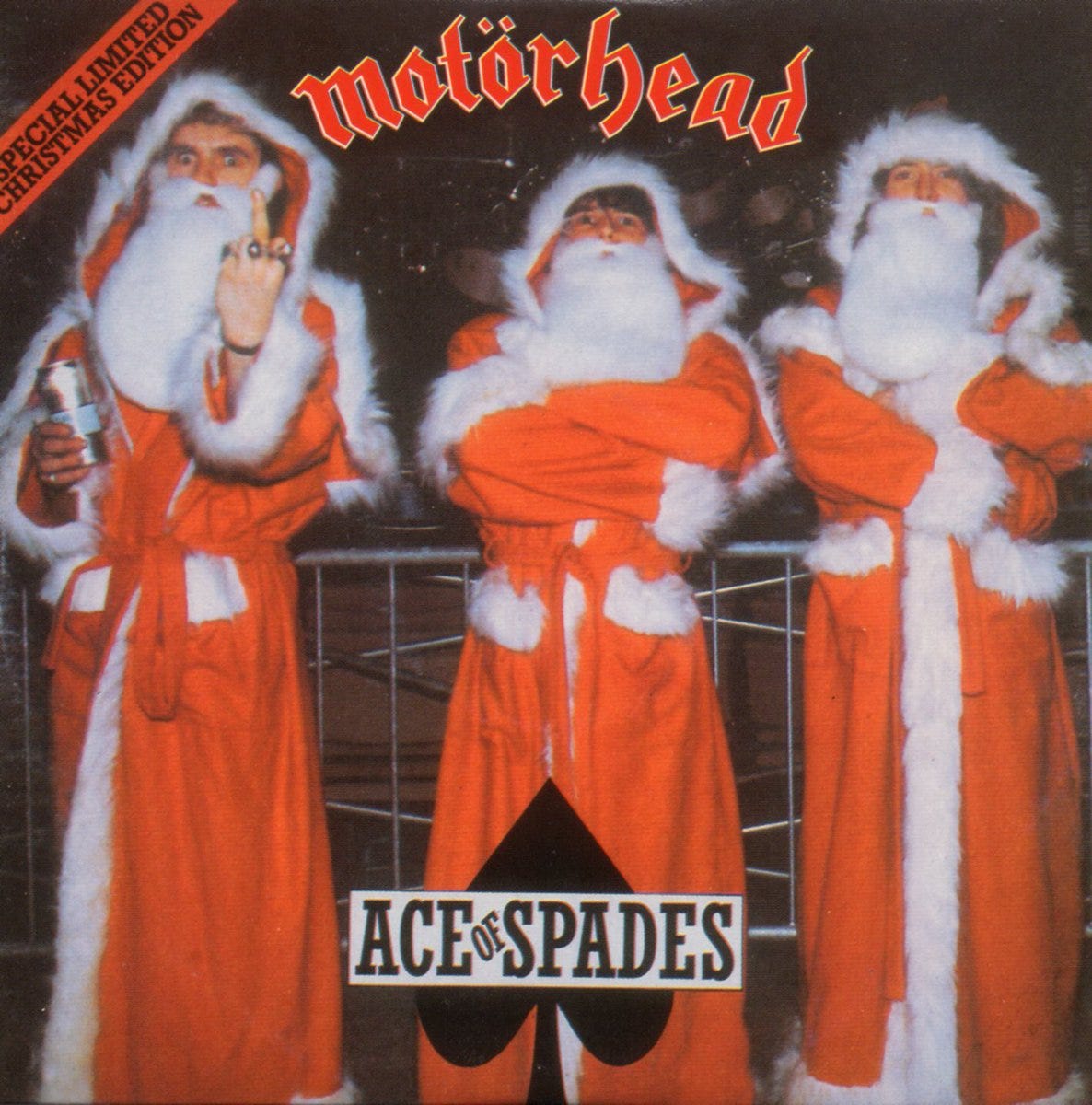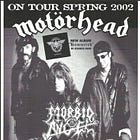Sunday, Lemmy and Me, Part Four
Honoring the Motörhead leader's birthday with another chapter of our epic interview
Seasons Greetings, Jagged Time Lapsers!
Ian Fraser Kilmister, the man known as Lemmy, was born 78 years ago today… so it seems only right to observe the date of his birth by running Part Four of my epic 2002 interview with him. I’m posting this whole interview in segments as a special treat for my paid subscribers, all of whom have made this tough year significantly easier for me, and for whom I am exceedingly grateful.
One subscriber, Dan Weber, has called this the “Best rock interview I’ve ever read,” and I’m certainly not gonna argue with that assessment. In any case, even if you just pony up for a single month’s subscription in order to read this in full, I guarantee it’ll be worth your five bucks — not to mention it’ll give you something fun to read while you’re sacked out on the couch and digesting your holiday feasts.
If you’re just joining us, start with Part One here:
And if you’ve missed Part Two, you’ll find it here:
Part Three is here:
And on we go!
So far, we’ve covered everything from Lemmy’s musical awakening to his acid-drenched days as Jimi Hendrix’s roadie, his speed-addled days with Hawkwind, the formation of Motörhead, and the ill-fated period when Thin Lizzy’s Brian Robertson took over on guitar for “Fast Eddie” Clarke — with several left turns, rewinds and odd tangents along the way, partly owing to the many Jack and Cokes that Lemmy has been generously plying me with.
Lemmy is, of course, outdrinking me by several lengths, and he’s also just hovered up a bump of speed the length and width of my thumb — an action which doesn’t seem to have had the slightest bit of outward effect on him. We have now repaired to the balcony of the suite at the Bel-Age Hotel in West Hollywood that Revolver magazine rented out for this interview and photo session. The photographer left hours ago, but we’re still talking away…
There were a couple of rough years at the beginning, but then Motörhead seemed to rise pretty quickly in popularity starting with the Overkill album in 1978.
See, you can do that in England. If you have enough word of mouth, it doesn’t matter if you’re not getting any press; you can play the shows, and people will follow you a hundred miles to the next show. In America, you can’t do that; you need the radio, and we’re never gonna get on the radio here. We got us on the radio with Sony! Fuckin’ Sony were such assholes, man. We had that song “I Ain’t No Nice Guy” [from 1992's March Or Die] with Ozzy and Slash on it, a good ballad, and we said, “Can we get AOR?” They said, “Oh, we asked AOR, and they wouldn’t have it.” I said, “You’re fucking lying — you haven’t had time to do that!”
So what happened?
We got two [independent promo] guys with phones, and they got us on 80 AOR stations in a month, right across the country, four in regular rotation. So I said [to Sony], “Can we have the money for a video? Ozzy and Slash will be in it.” And they said no. So we did our own video for eight grand; it’s not the greatest video, but it certainly ain’t the worst. And then they held it up at MTV; Sony wouldn’t sign the release, and so it died on the radio.
And do you know why? Because WTG Records [a subsidiary of Epic that Motörhead had signed with] was a tax loss. They signed a shitload of bands, and then one day we went in there, and everybody was gone. It was a tax scam. We weren’t supposed to have a hit; they were ringing up DJs in Kansas, saying, “Don’t play this — we didn’t give it to you!” They can afford to turn down a hit record. That’s the trouble with conglomerates! A hit record would have ruined their tax shelter. And that’s what’s wrong with those people.





